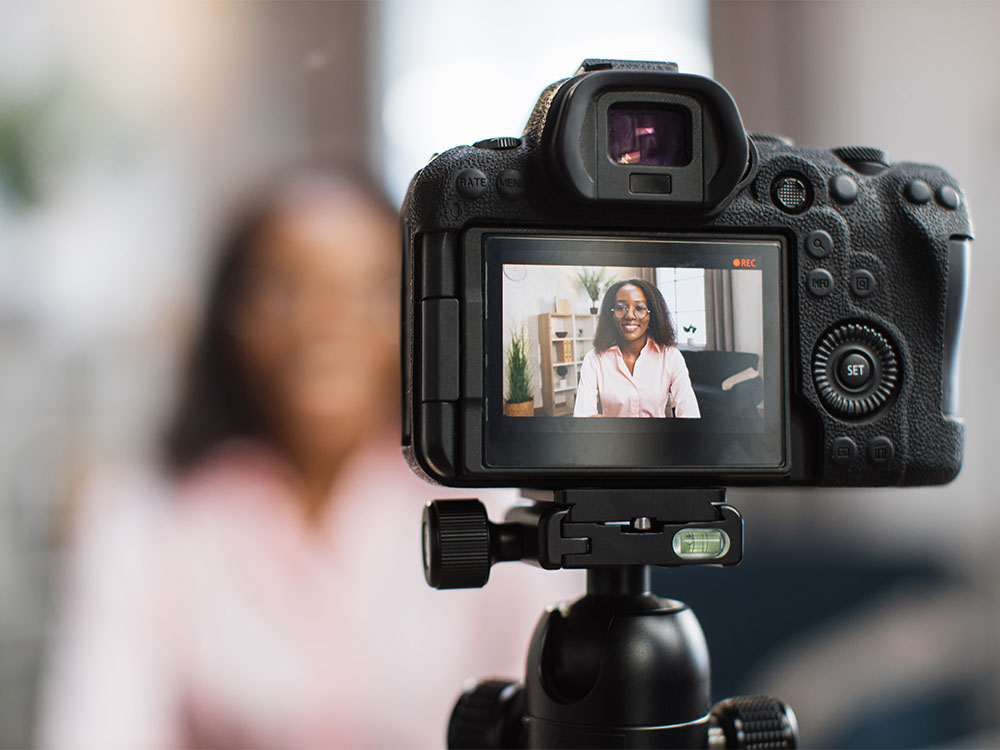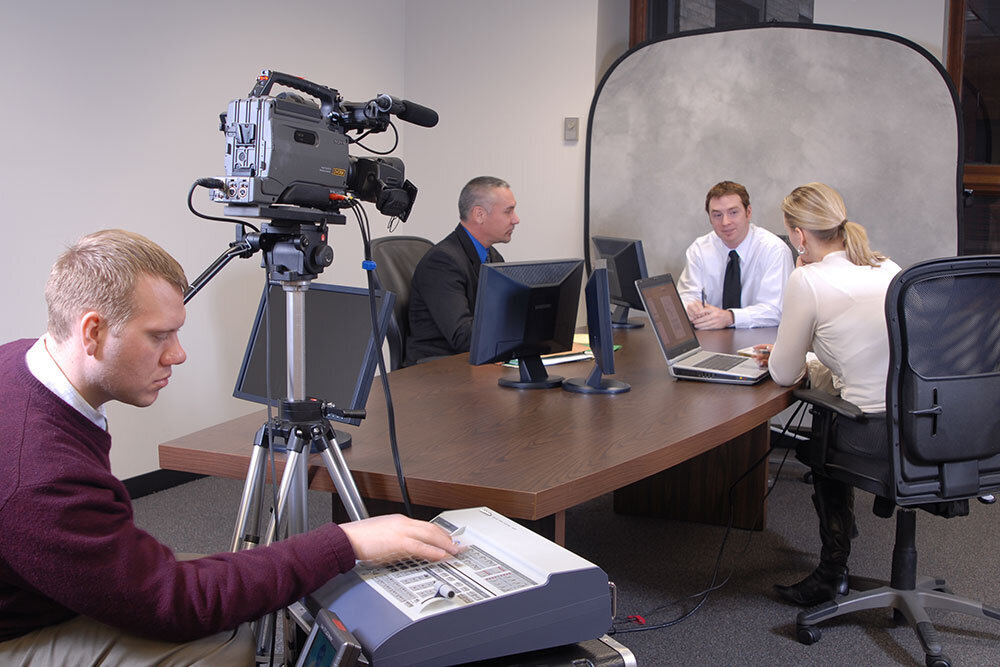The Importance of Legal Video Depositions in Modern Legal Providers: What You Should Know
Legal video depositions have actually become essential in today's legal landscape. They supply a multidimensional view of witness testaments that typical records simply can not match. By capturing both non-verbal and spoken interaction, these depositions improve the overall understanding of a witness's reliability. The efficiency of video depositions hinges on different elements, consisting of conformity with lawful criteria and finest methods. Exploring these elements reveals their true value in contemporary legal solutions
What Are Legal Video Clip Depositions?
Legal video clip depositions work as an important device in the litigation process. They entail videotaping witness testimonies in a video style, capturing both non-verbal and verbal interaction. This technique enables attorneys to document the disposition, expressions, and responses of witnesses, giving a richer context for the testament. Generally conducted in a controlled setting, these depositions are led by attorneys that ask concerns while a stenotype reporter documents the discussion. The resulting video can be important for test preparation, as it makes it possible for legal representatives to assess the trustworthiness of witnesses and fine-tune their techniques. Furthermore, legal video depositions can be utilized in various legal contexts, ranging from civil disputes to criminal cases. The acoustic and visual elements of video depositions enhance the presentation of evidence, making it a crucial part in the modern lawful landscape. Generally, they contribute significantly to the effectiveness and performance of legal process.

Advantages of Video Clip Depositions Over Standard Approaches
Video depositions offer various advantages contrasted to standard techniques of taking witness statements. One significant advantage is the ability to catch both aesthetic and audio aspects, providing a more complete document of the witness's statements. This dual format enhances clearness and allows legal experts to reference certain subtleties during test preparation. In addition, video depositions assist in remote engagement, making it easier for witnesses who might be inaccessible for in-person appearances due to geographical restrictions or health issues.Moreover, video depositions can quicken the total deposition process, lowering the moment and prices related to travel and logistics. They also improve accessibility, as tape-recorded depositions can be conveniently shared amongst lawful teams and referenced any time. This ease adds to far better situation management and prep work. On the whole, video clip depositions stand for a modern-day, effective approach to collecting witness statements, straightening with the developing requirements of the lawful occupation.
The Duty of Body Language and Tone in Testimonies

In lawful video clip depositions, body language and tone play vital duties in conveying a witness's trustworthiness and trustworthiness. Nonverbal signs can offer insights into a witness's mood, influencing exactly how their testament is regarded. Comprehending the effect of these aspects is vital for jurors and lawyers alike when assessing the reliability of a statement.
Nonverbal Interaction Insights
While spoken communication is typically stressed in lawful testimonies, nonverbal hints such as body language and tone play a crucial role in conveying reputation and emotion. Observers of depositions may keep in mind that a witness's position, motions, and faces can considerably affect assumptions of reliability. Constant eye call may signify confidence, while staying clear of gaze could suggest dishonesty or discomfort. The tone of voice-- its pitch, pace, and quantity-- can pass on sensations of sincerity or uncertainty. Lawyers have to be in harmony with these nonverbal signals, as they frequently offer crucial context that complements talked words. Comprehending these subtleties can boost the effectiveness of depositions and influence the outcome of lawful proceedings.
Emotional Tone Effect
The emotional tone conveyed during lawful testimonies considerably influences how a witness is perceived. Body language, singing inflections, and faces play crucial roles in shaping the story of a testimony. A witness displaying self-confidence with steady eye contact and a calm tone can infuse a sense of integrity and involvement. Alternatively, signs of anxiousness, such as fidgeting or a shaky voice, may result in skepticism regarding their account. The nuances of psychological expression can affect the analysis of realities, making it essential for legal experts to acknowledge these hints. In video depositions, the auditory and aesthetic elements combine, stressing the significance of psychological tone in sharing sincerity and truthfulness within the legal procedure.
Trustworthiness and Dependability
A vital consider developing credibility and reliability throughout statements lies in the witness's body movement and tone of voice. Viewers often rely upon non-verbal hints-- such as eye call, stance, and gestures-- to examine a witness's sincerity. A witness that preserves eye call and shows open body language may be viewed as even more straightforward and trustworthy than one who prevents eye call or shows up shut off. Furthermore, intonation plays a necessary role; a steady, calm tone can enhance the integrity of the testimony, while changes in pitch or volume might elevate questions. Ultimately, the mix of body language and singing tone significantly influences exactly how a witness's statements are received and interpreted in a legal context.
Finest Practices for Carrying Out Video Clip Depositions
Performing video clip depositions needs careful planning and implementation to ensure a clear and efficient discussion of testament. First, it is very important to pick a peaceful, well-lit area to decrease diversions and safe ideal video high quality. The tools should be evaluated ahead of time, consisting of video cameras, microphones, and illumination, to prevent technological check issues throughout the deposition.Next, parties entailed need to review the style and procedures in advance, making certain that everyone comprehends their functions. The deponent ought to be oriented on the process, including just how to react plainly and concisely.Additionally, preserving a specialist attitude throughout the session is necessary. This includes avoiding speaking over one another and verifying that all questions are routed properly. Finally, it is vital to videotape the deposition in a style that permits easy playback and evaluation, protecting the integrity of the statement for future usage.
Legal Factors To Consider and Conformity Issues
Just how do legal considerations and compliance problems influence the effectiveness of video clip depositions? Attorneys have to browse a complex landscape of policies, ensuring that video clip depositions comply with administrative policies and standards. Conformity with laws concerning personal privacy, authorization, and taping techniques is necessary. For example, obtaining specific consent from all celebrations entailed is essential to prevent lawful repercussions.Additionally, the admissibility of video clip evidence in court can rest on compliance with procedural demands. Making sure that the tools utilized satisfies technological criteria is additionally vital, as inadequate top quality can undermine the deposition's reliability.Moreover, attorneys must understand any certain state legislations that regulate video depositions, as these can differ significantly. Failing to attend to these factors to consider can not only endanger the integrity of the deposition however also affect the right here total case strategy, ultimately influencing the customer's lawful end results.
Just How Video Clip Depositions Impact Jury Perception
While video depositions can offer as effective tools in legal proceedings, their influence on court perception is considerable. The aesthetic and acoustic elements of video recordings offer jurors with an extra extensive understanding of witness demeanor, trustworthiness, and emotional feedbacks. This multimedia strategy can boost the jurors' ability to assess the dependability of testimony compared to conventional text-based transcripts.Moreover, video depositions permit jurors to observe body movement, tone of voice, and faces, every one of which can influence their analysis of the witness's statements. The visibility of a witness on display can humanize them, cultivating empathy and connection, which might guide jurors' viewpoints. Alternatively, a witness that shows up untrustworthy or evasive on video may cause unfavorable understandings that influence a jury's choice. Ultimately, the vibrant nature of video depositions plays a crucial function in shaping exactly how jurors analyze proof and reach their verdicts.
The Future of Video Depositions in Legal Practice
As innovations in innovation continue to improve the legal landscape, the future of video depositions is poised for significant evolution. Developments such as expert system, virtual fact, and boosted video clip conferencing devices are anticipated to enhance the deposition process and enhance accessibility. Lawyers might use AI-driven analytics to analyze witness reputation and situation stamina more effectively.Moreover, the assimilation of virtual fact can enable courts to experience immersive simulations of depositions, supplying much deeper context and understanding. In addition, the pattern towards remote depositions is most likely to continue, providing greater adaptability for attorneys and clients alike.As remote work comes to be significantly normalized, video clip depositions will likely become common practice, minimizing expenses and time restrictions related to traditional techniques. On the whole, these technological advancements guarantee to enhance the performance, efficiency, and access of video clip depositions in lawful practice, eventually changing just how lawful professionals get ready for test.
Frequently Asked Questions
How Much Do Legal Video Depositions Commonly Price?

Can Video Clip Depositions Be Utilized in Any Kind Of Kind Of Case?
Video clip depositions can be made weblink use of in numerous sorts of instances, consisting of civil, criminal, and household legislation. Their flexibility allows lawyers to existing witness statements effectively, adjusting to the certain needs of various legal scenarios.
What Devices Is Required for a Video Clip Deposition?
To perform a video clip deposition, crucial tools includes a high-quality cam, microphone, illumination, and a dependable recording device. Additionally, a computer system with editing and enhancing software application may be necessary for post-production and formatting the last video.
How much time Does a Normal Video Clip Deposition Last?
A typical video deposition lasts in between two to 4 hours, depending on the intricacy of the situation and the variety of concerns presented. Extensive sessions might take place, yet breaks are usually included for individual comfort.

Are Video Clip Depositions Admissible in Court?
Video clip depositions are normally acceptable in court, offered they follow lawful standards and policies of evidence. Their use enhances clarity and preserves witness testament, assisting in the judicial process throughout trials and hearings. Legal video clip depositions have ended up being vital in today's lawful landscape. In addition, lawful video clip depositions can be utilized in various legal contexts, ranging from civil conflicts to criminal instances. Furthermore, video depositions assist in remote participation, making it simpler for witnesses that might be inaccessible for in-person looks due to geographical restrictions or wellness issues.Moreover, video clip depositions can accelerate the total deposition process, decreasing the time and prices associated with traveling and logistics. Making sure that the devices utilized meets technical criteria is additionally essential, as poor quality can undermine the deposition's reliability.Moreover, attorneys have to be aware of any kind of specific state laws that control video clip depositions, as these can vary significantly. In addition, the pattern toward remote depositions is most likely to linger, providing better adaptability for lawyers and customers alike.As remote work becomes significantly normalized, video clip depositions will likely end up being basic method, decreasing costs and time restraints linked with conventional methods.